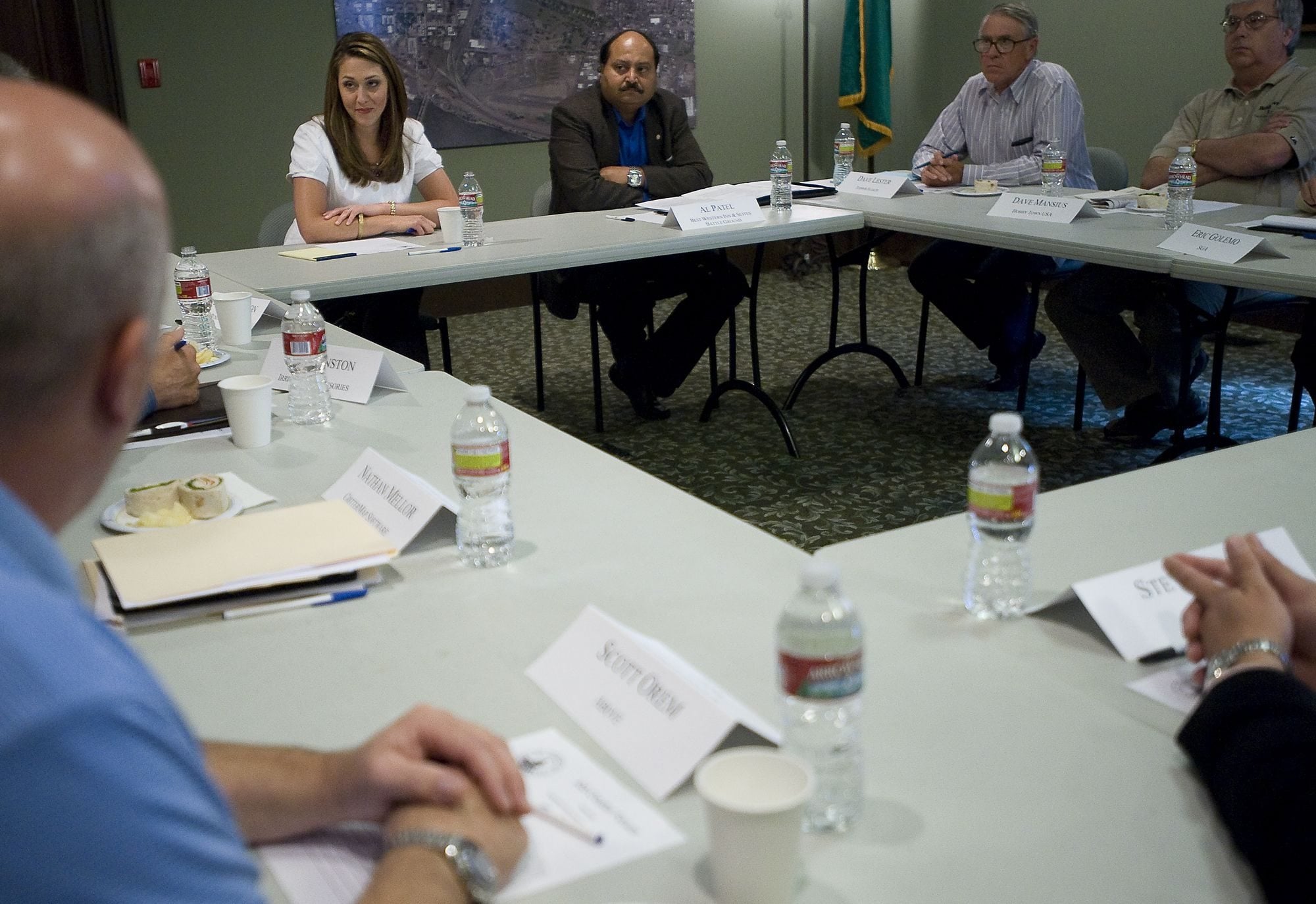When federal policies create winners and losers, more often than not, small businesses end up losing out, leaders from a dozen Southwest Washington companies told U.S. Rep. Jaime Herrera Beutler, R-Camas, on Monday.
At an invitation-only Vancouver gathering that included contractors, a dentist, a hotel owner, and the head of several hobby shops, Herrera Beutler asked for insight into how taxes and regulations affect job creation in the region. “The goal here is for me to learn from you,” she said. “What would you like me to know, as I’m wading through these issues?”
Business owners said they’re frustrated by a federal tax system that rewards some behaviors while punishing others, by unemployment programs that allow people to collect benefits when companies can’t find qualified workers, and by a national discourse that seems to overlook their everyday realities.
Several grumbled at President Barack Obama’s efforts to raise taxes on people earning $250,000 or more.
“In my business we had some really good years, but we didn’t take the money home. We decided to reinvest it,” said Eric Golemo, owner of Vancouver-based SGA Engineering & Design. Yet those reinvestments don’t count at tax time, leaving Golemo taxed as if he made $250,000 when his take-home was closer to $100,000, he said.
Dentist Jared Franson said he’s experienced the same thing — having to pay taxes as though he earns more than $250,000, when more than $100,000 of that goes to pay off debt on dental offices he owns in Vancouver, Longview and Camas.
A larger business might be able to write off those reinvestments, but small companies don’t have the tax know-how or the political connections to do so, Golemo said.
Higher taxes would be OK in some cases, as long as they were applied fairly, several business owners said.
“There’s probably some compromise to be found with tax breaks and benefits, for example with corporate jets, even if it raises taxes overall,” said Nathan Mellor, owner of Critter Map Software, a Camas business that develops Web and mobile software. “The airline industry is deserving — but app developers are, too, and they don’t get breaks.”
“Most of us in here don’t mind paying our fare share in taxes. I don’t,” said Dave Mensius, who owns several Hobby Town USA franchises, including one in Vancouver. “I want them to be put to good use.”
Herrera Beutler said people regularly ask her why the U.S. government favors some business sectors over others, adding that she’d specifically like to do away with ethanol subsidies.
“I’m hearing we should get rid of the complexity, even if it will raise taxes overall, but do not raise overall rates,” she said, as she listened to comments from the panel.
Workforce disconnect
Several business leaders said they are also concerned about a proposal to extend unemployment benefits, at a time when they struggle to find qualified workers.
Steve Jones, a manager with Longview-based Entek Corp., said he would hire heating and ventilation-certified workers on the spot, provided they had clean driving records and passed a drug test. The problem: he can’t find them.
Jon Johnston, president and owner of Irrigation Accessories in Vancouver, said he’s also struggled to find qualified workers.
“People are tired of buying stuff from China that breaks in two years. We can take back manufacturing,” he said. “Now the problem is we don’t have the people for it.”
Several business owners said they believe they’ve struggled to find good workers, in part, because people would rather collect unemployment for two years than work during that time.
“Most of the people who I find on unemployment start looking for work two months before the benefits run out,” said Mike Starks, president of Vancouver-based Soha Sign. “Extending benefits actually rewards low productivity.”
Herrera Beutler listened as business owners spoke, occasionally asking questions, but she generally held back from sharing her own views at the event, which she had dubbed a “Job Creator Roundtable.” Business leaders had been invited to share their thoughts after contacting her office, and were not screened for their political views, several said.
An hour after the meeting convened, Herrera Beutler stood and thanked participants for their time and input.
“People finding work in our region is the thing that keeps me up at night,” she said. “Your being successful means we as a region are successful.”



